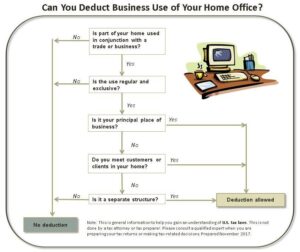Gift or Entertainment tax deduction expense? … as we enter into gift giving and entertainment season.. a common question arises among Small Business Professionals with sometimes much confusion:
Here are a few TIPS:
click here for IRS article
GENERALLY:
Any item that might be considered either a gift or entertainment generally will be considered entertainment. However, if you give a customer packaged food or beverages that you intend the customer to use at a later date, treat it as a gift.
If you give a customer tickets to a theater performance or sporting event and you don’t go with the customer to the performance or event, you have a choice. You can treat the tickets as either a gift or entertainment, whichever is to your advantage.
If you go with the customer to the event, you must treat the cost of the tickets as an entertainment expense. You can’t choose, in this case, to treat the tickets as a gift.
Gifts of up to $25 are 100% deductible, while entertainment expenses are only 50% deductible. So, when you have tickets that cost less than $50, you will get a bigger deduction if you treat them as a gift. If they cost more than $50, then better to treat them as an entertainment expense
GIFTS:
If you give gifts in the course of your trade or business, you can deduct all or part of the cost.
$25 limit. You can deduct no more than $25 for business gifts you give directly or indirectly to each person during your tax year. A gift to a company that is intended for the eventual personal use or benefit of a particular person or a limited class of people will be considered an indirect gift to that particular person or to the individuals within that class of people who receive the gift.
If you give a gift to a member of a customer’s family, the gift is generally considered to be an indirect gift to the customer. This rule doesn’t apply if you have a bona fide, independent business connection with that family member and the gift isn’t intended for the customer’s eventual use.
If you and your spouse both give gifts, both of you are treated as one taxpayer. It doesn’t matter whether you have separate businesses, are separately employed, or whether each of you has an independent connection with the recipient. If a partnership gives gifts, the partnership and the partners are treated as one taxpayer.
ENTERTAINMENT:
Entertainment includes any activity generally considered to provide entertainment, amusement, or recreation. Examples include entertaining guests at restaurants; at social, athletic, and sporting clubs; at theaters; at sporting events; on yachts; or on hunting, fishing, vacation, and similar trips.
Taking turns paying for meals or entertainment. If a group of business acquaintances takes turns picking up each others’ meal or entertainment checks primarily for personal reasons, without regard to whether any business purposes are served, no member of the group can deduct any part of the expense.
Entertainment tickets. Generally, you can’t deduct more than the face value of an entertainment ticket, even if you paid a higher price. For example, you can’t deduct service fees you pay to ticket agencies or brokers or any amount over the face value of the tickets you pay to resellers.
Lavish or extravagant expenses. You can’t deduct expenses for entertainment that are lavish or extravagant. An expense isn’t considered lavish or extravagant if it is reasonable considering the facts and circumstances. Expenses won’t be disallowed just because they are more than a fixed dollar amount or take place at deluxe restaurants, hotels, nightclubs, or resorts.
Exception for events that benefit charitable organizations. Different rules apply when the cost of a ticket to a sports event benefits a charitable organization. You can take into account the full cost you pay for the ticket, even if it is more than the face value if all of the following conditions apply. The event’s main purpose is to benefit a qualified charitable organization. The entire net proceeds go to the charity. The event uses volunteers to perform substantially all the event’s work.
Expenses for spouses. You generally can’t deduct the cost of entertainment for your spouse or for the spouse of a customer. However, you can deduct these costs if you can show you had a clear business purpose, rather than a personal or social purpose, for providing the entertainment.
Trade association meetings. You can deduct entertainment expenses that are directly related to and necessary for attending business meetings or conventions of certain exempt organizations if the expenses of your attendance are related to your active trade or business. These organizations include business leagues, chambers of commerce, real estate boards, trade associations, and professional associations.
Overall, it is important that as a Small Business Professional you understand clearly what is an Entertainment versus a Gift tax deduction. Get the maximum benefit without raising red flags with the IRS.




